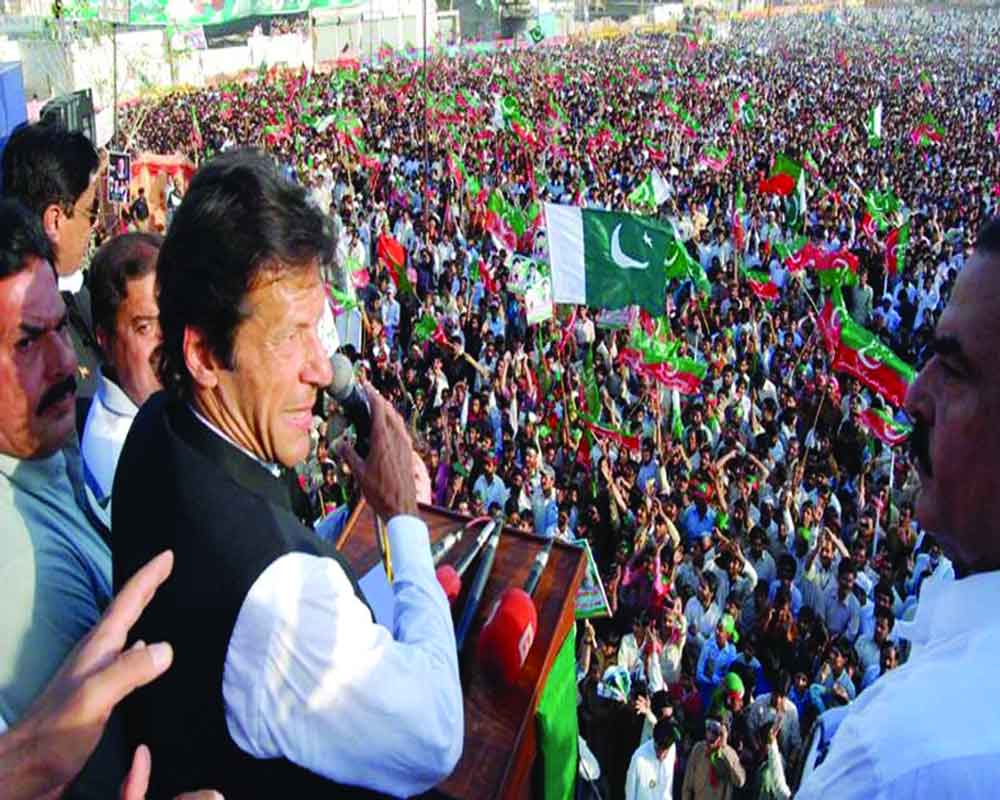Its history & politics are a complexity but since Indians have coexisted with its people for centuries, it’s not too difficult for us to understand
It is difficult, if not impossible, to understand unfolding events in Pakistan. However, it should not be so for us Indians who have coexisted with Muslims since 1092 AD, or earlier. For quite a large part of this period, the Muslims ruled large tracts of India. Mughal Emperor Akbar the Great was a genius as a statesman for a good 50-year part of this rule. Not many countries have produced the likes of him. What then is the supposed mystery of Pakistan for us?
Pakistan’s founder Qaid-e-Azam Jinnah was a brilliant person; for long years, he was the highest paid barrister in the entire British Empire. Pakistan, assuming its merit, was the greatest brief he won. Incidentally, it was a self-given brief and he persuaded the clients — the Muslims of undivided India. Normally, an advocate gets a brief to argue at the behest of client; he does not create one himself. Punjab, Bengal or Sind did not want Pakistan. They were Muslim-majority provinces with Muslim premiers with the whole Indian market at their disposal. Their natural question was —why Partition? The North West Frontier Province was dominated by the Frontier Gandhi, Abdul Ghaffar Khan, who was a member of the Congress which then was against Partition. Baluchistan was a separate princely state ruled by the Kalat, and not even part of British India.
The Muslims keen on dividing India were those who resided in Muslim-minority provinces which willy-nilly were to remain in India. Muslims of UP or United Provinces were the keenest. The Aligarh Muslim University was a stronghold of the Muslim League and an arsenal of Pakistan, in Jinnah’s words. They considered it their God-given duty to create a New Medina because the last Caliph of Sunni Islam had been expelled from Istanbul and the institution abolished by Kamal Atatürk. The results of the decisive elections of 1945-46 were a landslide victory for Jinnah.
However, the promised New Medina has not delivered the expected jannat to its faithful. In 1971, Pakistan sundered into two, Bangladesh, formerly East Pakistan, after a bloody struggle against West Punjabi colonial domination and later genocidal brutality, and the western part which is the current Pakistan, and its defeat by India. The woes of Jinnah’s dreamland don’t end here. Sind’s rallying cry is “Jio Sind” and it wants independence from Pakistan. NWFP or Pakhtunkhwa yearns for a separate Pathan nation, and has never reconciled to the plainsmen of Punjab. Baluchistan is firm on secession; who wants to remain united with Punjab-based Pakistan?
Jinnah did not really understand his community. Pakistan lacks any quality or even vestige of nationhood, a fundamental fact of history Jinnah had no knowledge of or no time for, as he was whipping up frenzy among the Muslim masses. The only factor — religious identity — can said to be the genesis of Pakistan is driving zeal. Carved out of Hindu-majority India, Pakistan was the culmination of the tussle and conflict between natives who had converted to Islam and the overwhelming who did not. Converts identified with Arab invaders of the last millennium. Shah Waliullah (1703-62), a ‘purifier’ of Islam on the subcontinent, despised local traditions and pompously declared: “We (Indian Muslims) are an Arab people whose fathers have fallen in exile in the country of Hindustan, and Arabic genealogy and the Arabic language are our pride.” Waliullah was worried about the growing power of the Marathas and the Mughals’ helplessness against them as Babar’s dynasty had begun fading into the twilight of history.
Ironically in the 20th century, it was the impeccably Saville Row-attired, westernised Jinnah with Victorian manners, a secular enough outlook and an appreciation of finest foods and wines, who articulated the same fears that the 18th century Shah Waliullah had done, although Jinnah was unrecognisably different from Waliullah, a bearded religious scholar. But their arguments were uncannily similar. Jinnah too declared the separateness of Muslims and Hindus, basing his case for Pakistan on the premise that the two peoples could never live together peacefully within one nation State. He nevertheless did articulate the fears and aspirations of an influential section of his co-religionists. The conservative ulema opposed Jinnah and Partition as they believed that Islam must not be confined to national borders. But Jinnah’s argument that Muslims constitute a distinct nation that would be overwhelmed in post-British India by a larger and better-educated Hindu majority won the day.
That being so, why has Pakistan failed to evolve into anything resembling a nation? Its current Prime Minister Imran Khan, another western-educated playboy and former cricket star but an Army puppet nonetheless, is on his way out, whatever the outcome of the no-confidence vote against him in the National Assembly. Imran’s failed “Naya Pakistan” might well seed another secession of his country, possibly its dissolution too.
The blame must lie with Jinnah, whose incoherent ideas of what his new country would look like are bearing toxic fruit. A State whose sovereignty rests with Allah and not the people is a medieval theocracy, not a nation. Besides, Pakistan, after its inception, chased the chimera of resurrecting the long-gone Islamic rule over the subcontinent, and not its citizen’s welfare, which would merit another article.
(The writer is a well-known columnist, an author and a former member of the Rajya Sabha. The views expressed are personal.)


























